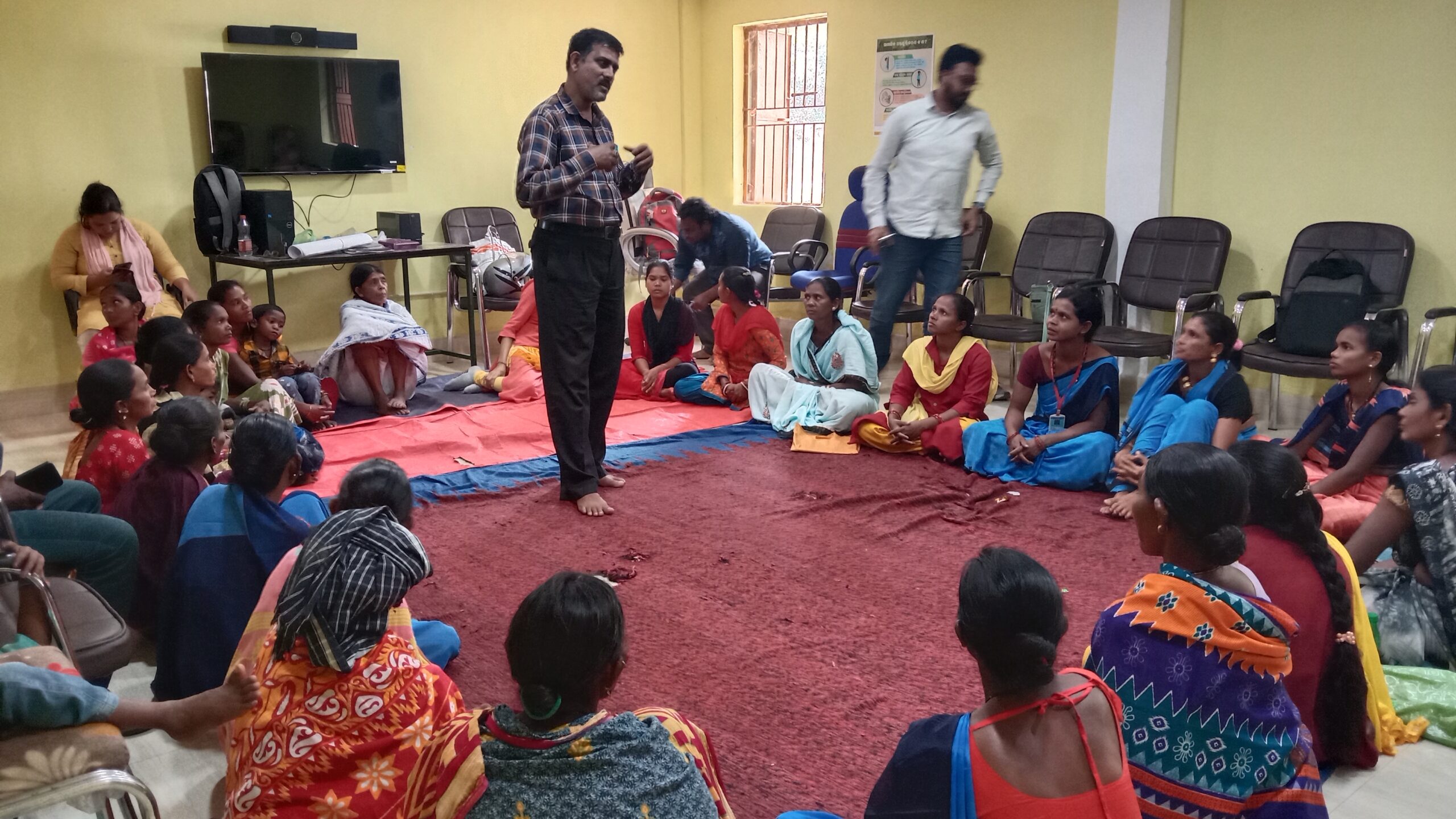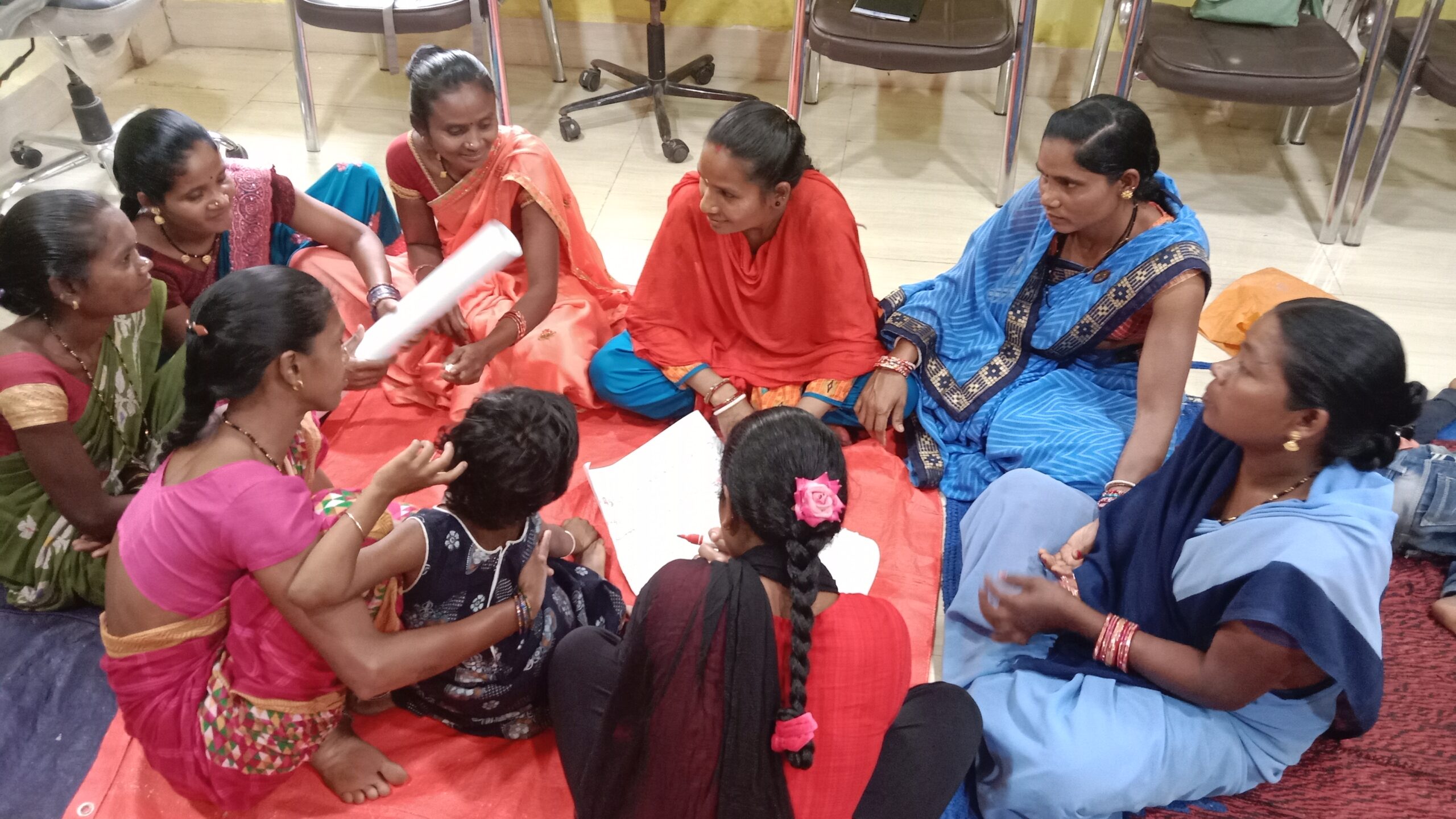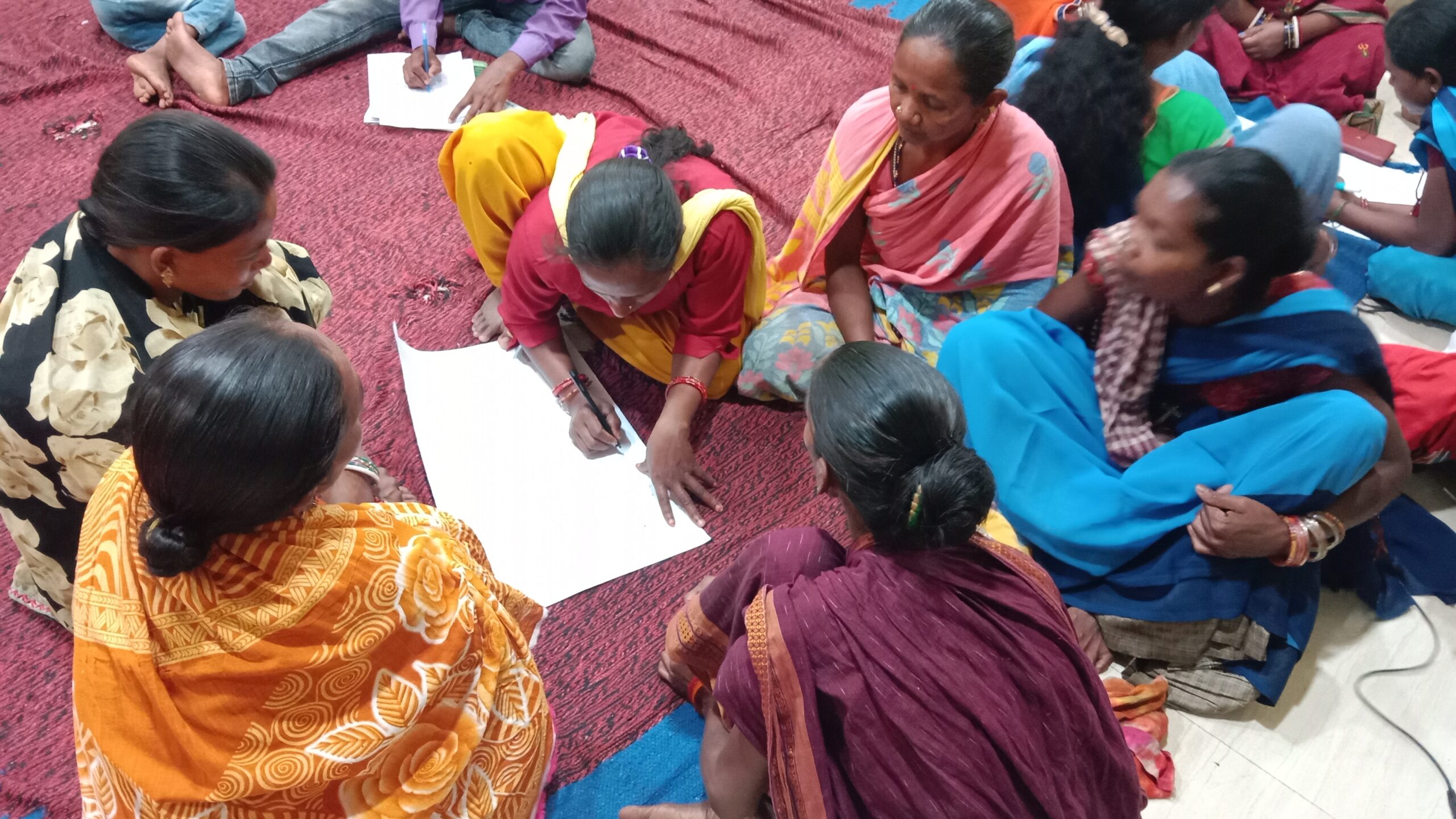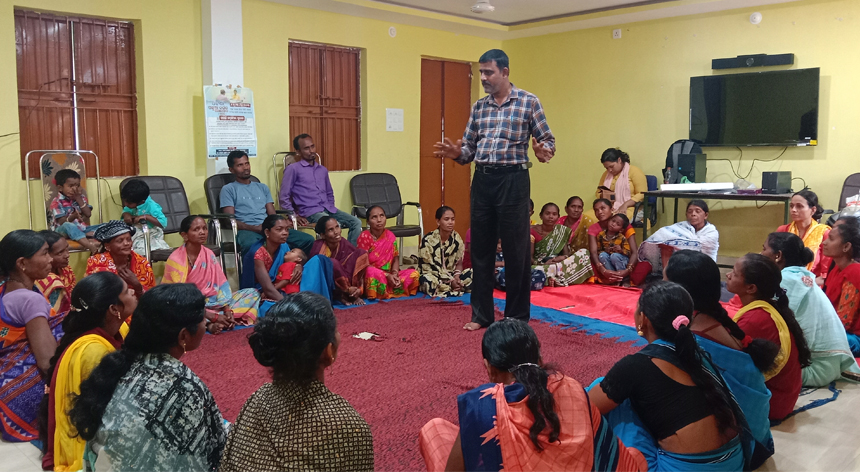Deficiencies in vitamins and minerals, known as micronutrients, have long-term consequences, especially for children and pregnant mothers in rural areas, impacting brain development and physical growth. Recognizing the urgent need to address these challenges, Caritas India has implemented a comprehensive strategy involving the training of front-line health workers, Community Resource Persons of Mission Shakti (CRP), and members of Self-Help Groups (SHG), with a special focus on pregnant and nursing mothers.
Caritas India’s Global Program is making significant steps in rural villages of Rayagada district of Odisha to enhance nutrition knowledge and food security awareness through its innovative Capacity Building program. The initiative, which aligns with the micro-level objective of improving nutritional knowledge among disadvantaged families, particularly children and pregnant mothers, is proving to be a boon in building resilient and healthier communities.
The heart of Caritas India’s approach lies in supplementing governmental interventions under the Nutrition Mission and strengthening local community organizations, leaders, health workers, and mothers to be effective responders to health and nutrition vulnerabilities. By adopting a system-strengthening approach in collaboration with local health and ICDS centers, the program places key stakeholders, including front-line health workers, women’s self-help groups, and mothers’ groups, as change-makers in addressing nutrition and food security challenges.

Nutrition and food security are fundamental elements for achieving the Sustainable Development Goals (SDGs). Caritas India’s Global Program recognizes the importance of adopting a localized approach to achieve SDG-2, focusing on nutrition and food security challenges. This approach involves a one-day Capacity Building program that was organized on February 23, 2024, in the Rayagada district, Odisha, targeting 46 participants, including front-line health workers, CRP members, SHG members, and mothers from Raskola and Karlaghati Gram Panchayats.

The program aimed to promote community engagement by raising awareness about nutrition, health, hygiene, and sustainable food practices, with a specific emphasis on the role of women in creating a healthy future and a sustainable food system. The participants actively engaged in the program, showcasing a keen interest in learning and implementing the knowledge gained within their communities. In the future, these participants equipped with the necessary skills and knowledge, can actively contribute to local initiatives, such as community gardens, food banks, and nutrition education programs, thereby enhancing overall food security.
The impact of the Capacity Building program was profound, as participants, like Laxmi Kundika, an Aanganwadi worker in Raskola Village, expressed their enthusiasm in sharing newfound knowledge with her peers and families. Laxmi emphasized the importance of a balanced diet sourced from locally available varieties of food, hygiene and sanitation practices, and the establishment of nutrition gardens in the community.

Encouraging community participation and raising awareness about good hygiene, sanitation practices, and the consumption of diverse and nutritious local foods are crucial steps towards building a resilient and sustainable food system. The capacity enhancement will help in developing resilient communities that can adapt to changing conditions, including those related to climate, economic shifts, and public health challenges. Resilient communities are better positioned to ensure food security for their members.
Caritas India’s initiative, exemplified by the Capacity Building program, emphasizes its commitment to empowering communities for a healthier and more secure future. In the words of Laxmi Kundika, the impact of these initiatives reaches beyond individual knowledge, promising to contribute significantly to the overall well-being of communities in Raskola and beyond.


Leave a Reply